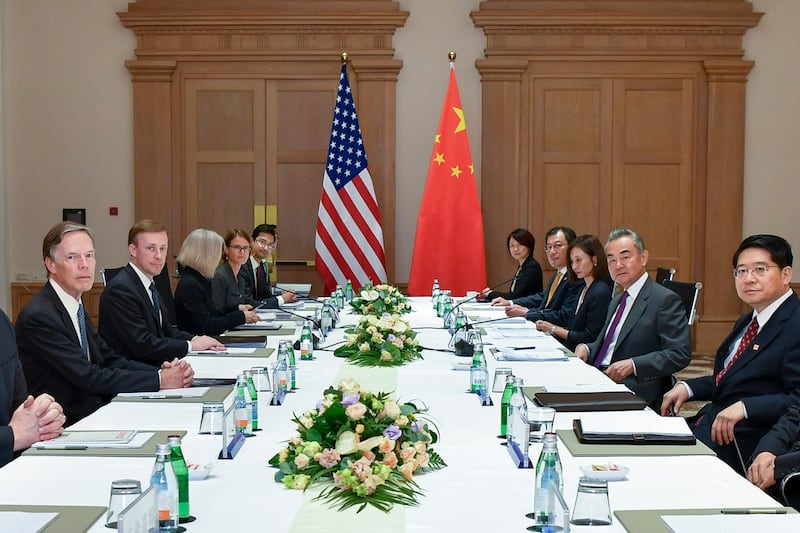The Nov. 5 U.S. presidential election will be on the agenda but “not the point” of a three-day visit to China next week by President Joe Biden’s national security adviser, Jake Sullivan, for talks with Foreign Minister Wang Yi, a senior White House official told reporters on Friday.
The official, who spoke on condition of anonymity to discuss the Aug. 27-29 trip, said the pair would discuss a range of topics including areas of disagreement, such as Taiwan, Ukraine and the Middle East.
“I wouldn't tie this trip or associate it too closely with the election – that's not the point,” the official said, adding that Sullivan and Wang had aimed to meet earlier in the year and were behind schedule.

Still, the official acknowledged the high-stakes election was “always in the background in any engagement we have with foreign officials concerned about what comes next” in terms of U.S. foreign policy.
“But this meeting will be focused on the topics and the issues that we are dealing with now,” they said. “There is a lot we can get done.”
It will be the fifth in-person meeting between Sullivan and Wang in 18 months, when tense ties began to thaw, and their first in Beijing. The previous talks were held in Vienna in May 2023, Malta in September 2023, Washington in October 2023 and Bangkok in January.
The last U.S. national security adviser to travel to the Chinese capital was Susan Rice under President Barack Obama in 2016.
Harris or Trump?
The White House official declined to comment on Sullivan’s likely response to what they called “the continuity question” – whether the winner of the Nov. 5 election would change their policy in regards to China – even as they acknowledged it would likely be discussed.
“It’s up to the next administration to determine China policy and how they intend to use some of these channels of communication,” the official said. “What we can speak to is how we intend to manage the balance of this administration … [and] manage the transition.”
However, the official did say it “bears repeating that U.S. diplomacy and channels of communication do not indicate a change in approach” to China from the the White House, or a softening of relations.
“It really is about clearing up misperceptions and avoiding this competition from veering into conflict,” the official said. “Even amidst competition, we can find constructive ways to work with each other.”
Edited by Malcolm Foster
